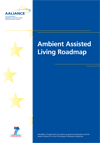New European population projections for 2008-2060, published by the European Office for Statistics, has recently underlined that the number of elderly persons will quickly increase. From 2015 on, deaths are projected to outnumber births in the EU27 and almost three times as many people will be aged 80 or more in 2060. This demographic development and the ageing of European populations will lead to a growing number of older people living alone and in need of (intensive) care, to an ageing workforce in general and to more financially well-appointed and wealthy senior citizens ready to enjoy their third age and to spend money on products securing and enhancing wealth, safety, security and not forgetting entertainment and communications needs. This demographic development and the ageing of European populations will lead to a growing number of older people living alone and in need of (intensive) care, to an ageing workforce in general and to more financially well-appointed and wealthy senior citizens ready to enjoy their third age and to spend money on products securing and enhancing wealth, safety, security and not forgetting entertainment and communications needs. Considering that this trend will also be correlated to a rapid growth in the number of persons with physical disabilities, it is clear that the problem of care and assistance to these persons are becoming more and more important both from social and economical points of view. These societal trends will bring dramatic challenges for healthcare and care systems, state pensions schemes and employers alike and at the same time offer innovation and business opportunities for technology providers in the field of innovative ICT-enabled assisted living or "ambient assisted living" (AAL). AAL relates to intelligent systems of assistance for a better, healthier and safer life in the preferred living environment and covers concepts, products and services that interlink and improve new technologies and the social environment, with the aim of enhancing the quality of life (related to physical, mental and social well-being) to for all people (with a focus on older persons) in all stages of their life. AAL can help older individuals to improve their quality of life, to stay healthier and to
live longer, thus extending ones active and creative participation in the community.
Currently there is a vast number of (more or less linked) European and national research activities in the field of AAL involving various technology areas and innovative technology approaches. What is missing however is a common vision of AAL providing and defining the necessary future R&D steps and projects on the way to Ambient Assisted Living. In order to close this gap the AALIANCE project - "The European Ambient Assisted Living Innovation Alliance" - was funded within the specific programme "Cooperation" and the research theme "ICT" of the 7th European Framework Programme. Its aim is to develop such a roadmap and strategic guidance for short-, mid- and long-term R&D approaches in the AAL context.
In this document the roadmap for AAL and its main related concepts are presented.
Download Ambient Assisted Living Roadmap (.pdf 4.136 KB).
Download from eHealthNews.EU Portal's mirror: Ambient Assisted Living Roadmap (.pdf 4.136 KB).
For further information, please visit:
http://www.aaliance.eu
